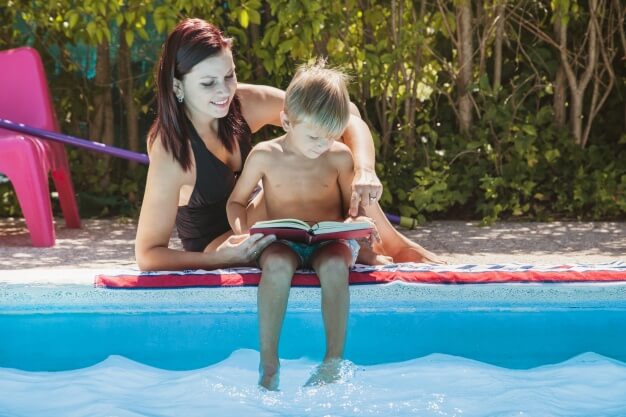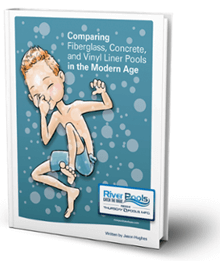What parents should know about swimming pools
Swimming pools are fantastic places for kids to relax and have fun. Parents are required to take specific measures when it comes to swimming pools to ensure that their children do not get harmed while in the water or around the swimming pool. Children should get watched actively while in the water. When it comes to infants and toddlers, you should get into the water with them so that you can be within reach. This touching supervision allows you to get hold of them immediately they are in the way of harm. For older children, you do not have to be in the water with them. However, you should be around the pool, paying close attention to their activities. Ensure that you focus on them and do not get distracted by activities such as playing with your phone or socializing. When it comes to swimming pool emergencies, every second will matter. Another important thing for you as the supervising adult is that you should remain sober throughout the period the children are in the pool. You should also be able to swim and taking some classes in first aid, and lifeguarding is essential. These measures are the necessary steps that you should undertake to ensure the safety of your children. What more should you know about swimming pools?

Swimming pool regulations
Whether you are using a public pool or your pool, there are rules that you need to follow.
Toys - When your kids are not using the pool, ensure that all the toys get cleared from the swimming area. Having toys in the vicinity is risky because a person could trip over them and fall into the pool. Toys include tricycles as well as any other riding toys.
Blow-up pools - The good thing about blow-up pools is that they are easy to handle. Empty the water in such set-ups immediately your kids are done swimming. Not only does this prevent an event where someone falls into the pool but it also enables you to use fresh water for each swim, thus promoting hygiene.
Electrical appliances - Do not place any electrical devices near the pool area. Children can get carried away in the heat of the moment and end up throwing such items into the water, causing accidents. Get rid of any such appliances in the vicinity as well as any electrical wires that run close to the pool area.
Diving - Diving is enjoyable, but it can also have devastating effects. Before allowing your kids to dive into the water, ensure that the depth is appropriate for such activities. For young kids, they can jump into shallow water without getting harmed. Older kids need deeper water for diving, given that they have increased regarding weight. If you are unsure of the appropriate depth for such activities, have a lifeguard come and assess the pool. Should your child dive into water that is too shallow for their weight and height, they can suffer from injuries such as head trauma. Explain to your children the effects of diving and where the pool is deep enough; show them the correct way to dive to avoid accidents.
Running - Do not allow your children to run in the swimming area. If they wish to play such games, direct them to an area that is far from the pool. Running can lead to them falling into the pool and probably hurting themselves in the process. Explain these rules to your children, enabling them to understand the consequences of such actions. In this way, they will also take caution while in the pool.
Pool fencing - Young children can find their way to the pool area if the area is not well fenced. Such a situation is hazardous as they could end up getting into the pool unsupervised and this would have terrible consequences. Having a fence around your pool enables both your children as well as those in the neighborhood to be kept safe.
Fencing the pool
Climb resistance - Children love climbing, and if they come across a climbable fence, they will not hesitate to do so. Make sure that the wall gets made of the material on which they cannot get a good grip. Clear any furniture around the fence which can be used to help them scale the wall.
Height - Make the fence high such that they cannot jump over it. The wall should not possess any handholds or footholds which children can use in climbing it. A wall that is at least four feet high is ideal.
Gate - The main entrance to the pool area should have a barrier which gets adequately maintained. The gate should also have self-closing and self-latching features to make it more secure. Make sure that it only opens away from the pool, making it impossible for children to fumble with the lock and force their way. The latches should be placed at least fifty-four inches from the bottom of the gate to make it impossible for a child to reach.
Ladders - Where you have an above-ground pool, ensure that you remove the ladders when the pool is not in use. Otherwise, your children will use the ladders to gain access to the pool unsupervised.
Swimming lessons - Each child develops at a different rate and as such, kids cannot learn to swim at the same time. Once you feel that your child is ready for that stage, you can go ahead and teach them to swim or organize swimming lessons for them with a trained swimming coach.

